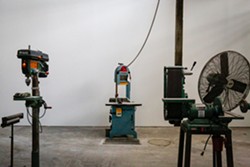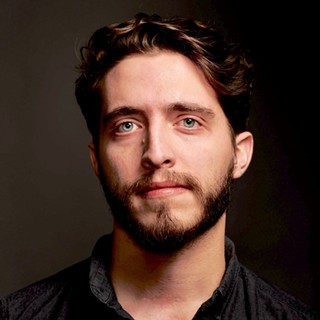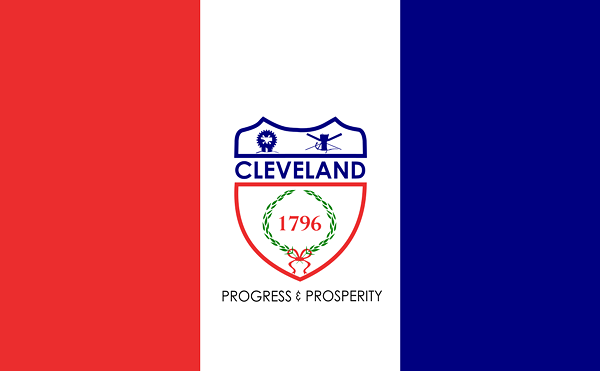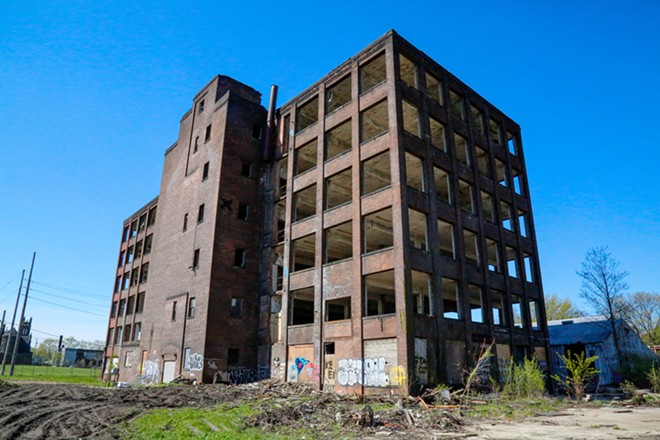
Then, investors balked at the fish farm. Shorey, who grew up in Chicago with a Scottish artist for a mother, saw 2469 East 71st for what it really was.
"We've got some ideas going," Shorey said, standing outside the structure with German Shepherd Paolo. "But the key idea is: this tower, from the get go, was always envisioned as being for artists."
Shorey's itch to convert a massive, vacant shell into something one might see in the Gordon Square Arts District represents the growing sentiment of at least a half dozen other developers. And with good timing. With the majority of the dozens of artists vacating the ArtCraft Building on Superior Ave. to make way for Cleveland Police's new headquarters, those people, and other artists, will need a place to call home.
Along with Shorey's estimated $8 million Foundry Project—named after the 25-ton castings that once occupied the building's floors—there's the Twist Drill Building on East 49th; the upcoming Belden Building on East 45th; eight new studios being raised at West 78th Street Studios; and dozens of walls going up at 49th and Hamilton.
But the question, for both future tenants and their landlords, is one definitely pertinent to the rest of the city's burgeoning rental market: What's the right price for entry? And will that entry fee hike over time?
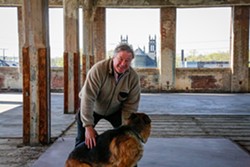
“Before I even started I thought this was going to be the next big arts area," Loren Naji, an experimental artist who works adjacent to the Twist Drill in Cleveland's Midtown, told Scene. "Artists are generally poor. They move into rundown areas. There’s a life cycle. And then rents go up."
Naji, who sold his studio in Ohio City to relocate to a space on East 49th, wonders how developers might play with capitalistic notions of returns.
And if rents are too high, say, on 71st?
“Well, then someone else’s gonna to build another building and make it cheaper,” he said.
Which Shorey seems to be very well cognizant of.
After acquiring the building "for six figures" from the Cuyahoga County Land Bank in 2015, Shorey and his four partners narrowed their intentions of maintaining affordability. Because 2469 is not a brownfield, meaning no pollutants needed cleaning up, and Foundry can receive grant money as a nonprofit, Shorey said he'll be free to offer rents "30 percent below market" when the building opens to tenants in five, six years. Fashioning The Foundry's top, sixth floor as a probable wedding space, should, Shorey hopes, help keep rents low.
On a walkthrough Thursday morning, Shorey demonstrated a sort of napkin-drawing version of what the shell of a building might be by 2030. Here, on the third floor, could be a dozen studio spaces. There, a common space where ceramicists can mingle over coffee; on the first floor, where the Rainey Institute could host kids-focused arts classes. And there, where the iron foundry sits on the west side of the building, the kilns—"so that, if there's a fire, the whole building doesn't go."
The intention, for Shorey, is to veer away from the glitz and glamor that some maker spaces have evolved into.
"We're not going to put sinks in every studio. We're not going to put a toilet in every studio. That just adds unnecessary cost," Shorey said, walking through the building's gutted third floor. "And that's not what artists want."
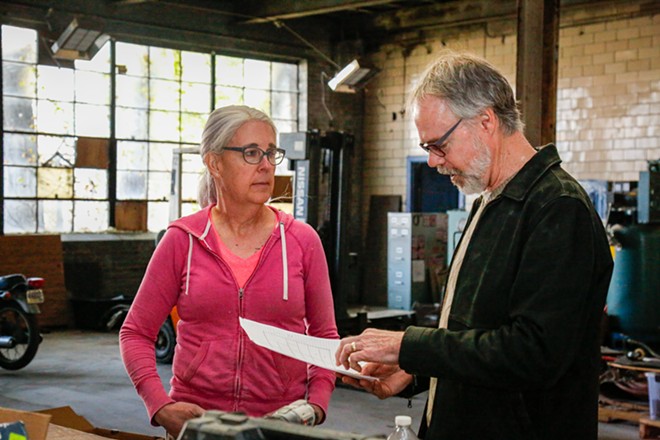
Bought for $85,000 in January 2022, the Belden, like Shorey's Foundry, was always in some way intended to house career artists at a decent price. In Hronek's mind, the property, built by the Republic Brass Company in 1947, possessed the type of natural light that once made ArtCraft so valuable to its painters.
"The light cascading through these three bays was just staggering," Bush said during a recent tour, nodding up at the Belden's lengthy bay windows. "And I don't mean to get silly about it. It's still an old, dirty building. But seeing the white walls going up and paint going on? I mean..."
Bush's involvement with the Belden brings, admittedly, a sort of interesting edge. West 78th Street Studios, which has become arguably the definitive artist mecca on Cleveland's west side, has, for some, reached critical mass 22 years after Bush bought and began renovating the building. After all, 78th is known in the community for its higher-than-market rents, and its lengthy waiting list. (About 200 people, according to Bush.)
And, with Belden's $75,000 roof replacement work, with its copper electrical installations and the old oil spill to clean up, there's no doubt as to why Hronek, a motorcycle mechanic and insurance broker by trade, works daily on readying Belden for tenancy: to inevitably turn a profit.
"We've also got to be reasonable," Hronek said, standing adjacent to a space where blacksmith Steven Yusco will soon occupy. "We're providing a quality product for artists, and buildings like the ArtCraft."
"[Which] was unsustainable," Bush interjected.
"Yeah, it was a dump. It was unsustainable," Hronek added. "The maintenance [was] not going to get done on that building."
As for hobbyists or non-careerists, Hronek suggests the Belden's rents—which will start at $550/month—may not be fitting. "We're looking for established artists," she said.
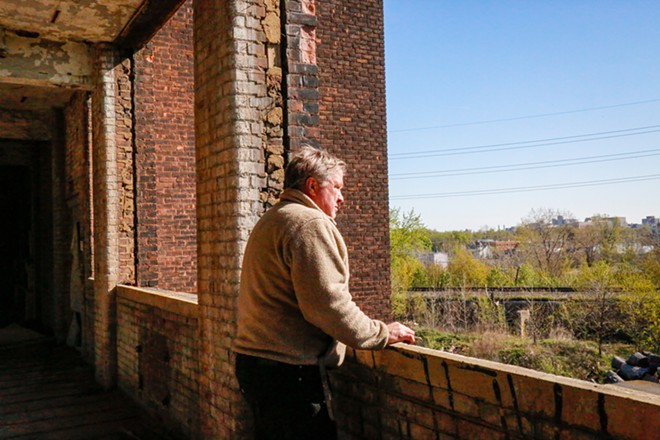
As Shorey talks about what might be on The Foundry's third floor, he leans on a ledge overlooking the site's massive north lawn, which is covered in torn up concrete and ugly mud tracks.
"An artist friend of mine asked me if I could put a scoreboard screen on this side of the building," Shorey said. "Could you imagine that? Watching a performance of Shakespeare while sitting on the grass."
Coming soon: Cleveland Scene Daily newsletter. We’ll send you a handful of interesting Cleveland stories every morning. Subscribe now to not miss a thing.
Follow us: Google News | NewsBreak | Instagram | Facebook | Twitter

